1500+ ★★★★★ REVIEWS
Understanding Telogen Effluvium: Causes, Treatments, and Solutions
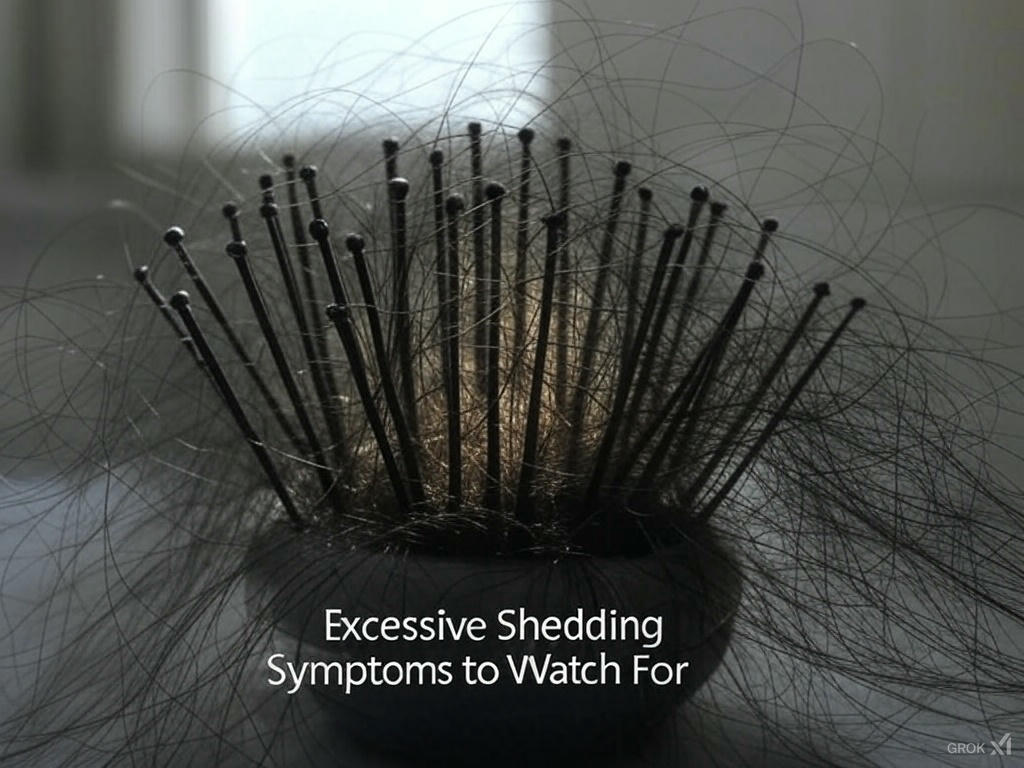
Telogen effluvium is a common yet often misunderstood form of hair loss characterized by excessive shedding across the scalp.Unlike genetic conditions like androgenetic alopecia, telogen effluvium is typically triggered by external or internal stressors that disrupt the hair growth cycle. While it can be distressing, the good news is that it’s usually temporary with proper care and intervention. In this article, we’ll dive into the causes, symptoms, and a range of solutions—both medical and non-medical—to help you manage telogen effluvium effectively.
Table of Contents
What Is Telogen Effluvium?
Telogen effluvium occurs when a significant number of hair follicles prematurely enter the telogen (resting) phase of the hair growth cycle, leading to increased shedding. Normally, about 5-10% of your hair is in this resting phase, but with telogen effluvium, that percentage spikes, causing noticeable thinning. According to the American Academy of Dermatology (AAD), this condition doesn’t typically cause bald patches but rather a diffuse loss of hair density.
The hair growth cycle has three main phases: anagen (growth), catagen (transition), and telogen (resting). After telogen, hair naturally falls out and is replaced by new growth. In telogen effluvium, a trigger pushes more hairs into the resting phase simultaneously, resulting in shedding 2-3 months later, as explained by Healthline.
Causes of Telogen Effluvium
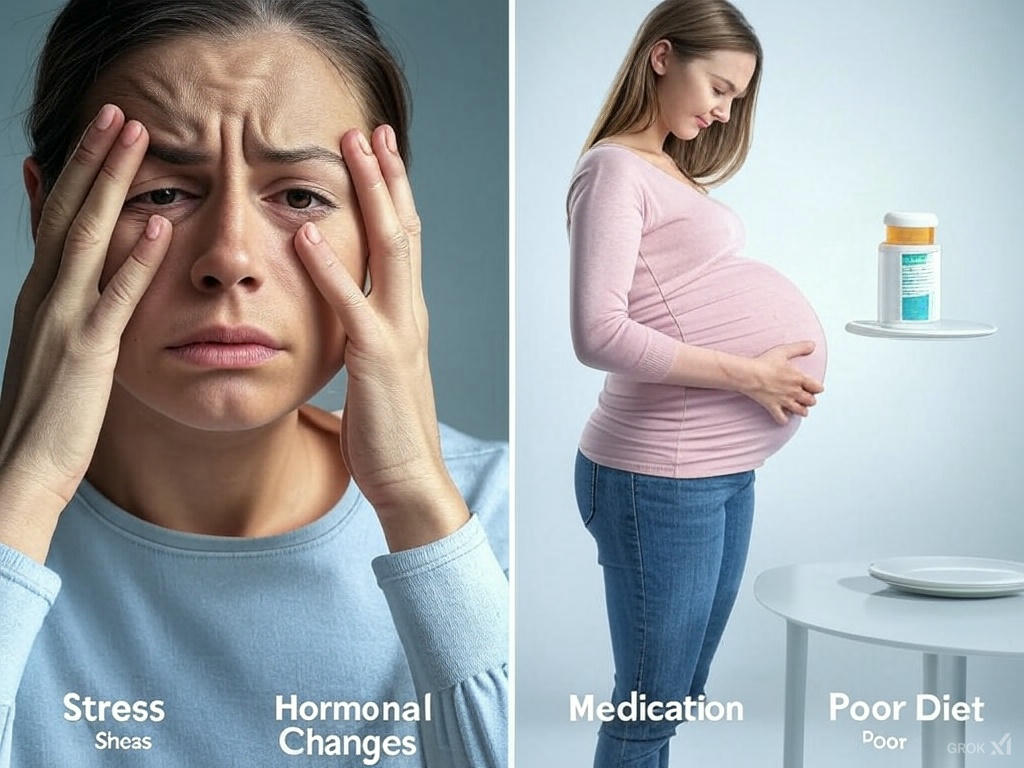
Telogen effluvium can be sparked by a variety of physical or emotional stressors. Common causes include:
- Stress: Emotional trauma, such as a death in the family or job loss, can disrupt hair growth, per Cleveland Clinic.
- Hormonal Changes: Postpartum shifts, menopause, or starting/stopping birth control are frequent triggers, notes WebMD.
- Nutritional Deficiencies: Low levels of iron, vitamin D, or protein can weaken hair, according to Medical News Today.
- Medications: Drugs like antidepressants, beta-blockers, or chemotherapy can induce shedding, as outlined by the AAD.
- Illness or Surgery: Fever, infections, or major procedures can shock the system, leading to hair loss months later.
Chronic telogen effluvium, lasting over six months, may occur in some cases, often linked to ongoing stress or deficiencies.
Symptoms to Watch For
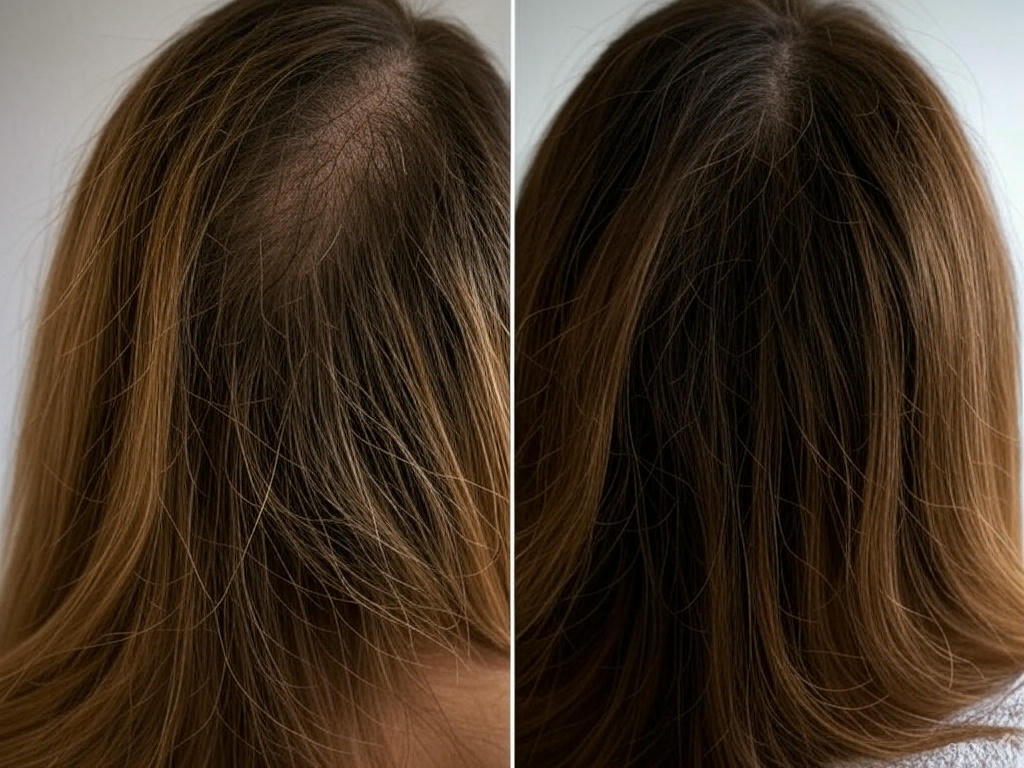
Telogen effluvium doesn’t present with bald spots like alopecia areata but shows more subtle signs:
- Increased hair shedding (e.g., more hair in your brush or shower drain).
- Thinning across the entire scalp, especially at the crown or parting line.
- A temporary widening of your hair part.
You might notice shedding of 100-300 hairs daily—far more than the usual 50-100—though the scalp remains healthy without inflammation, per Healthline.
Medical Solutions for Telogen Effluvium
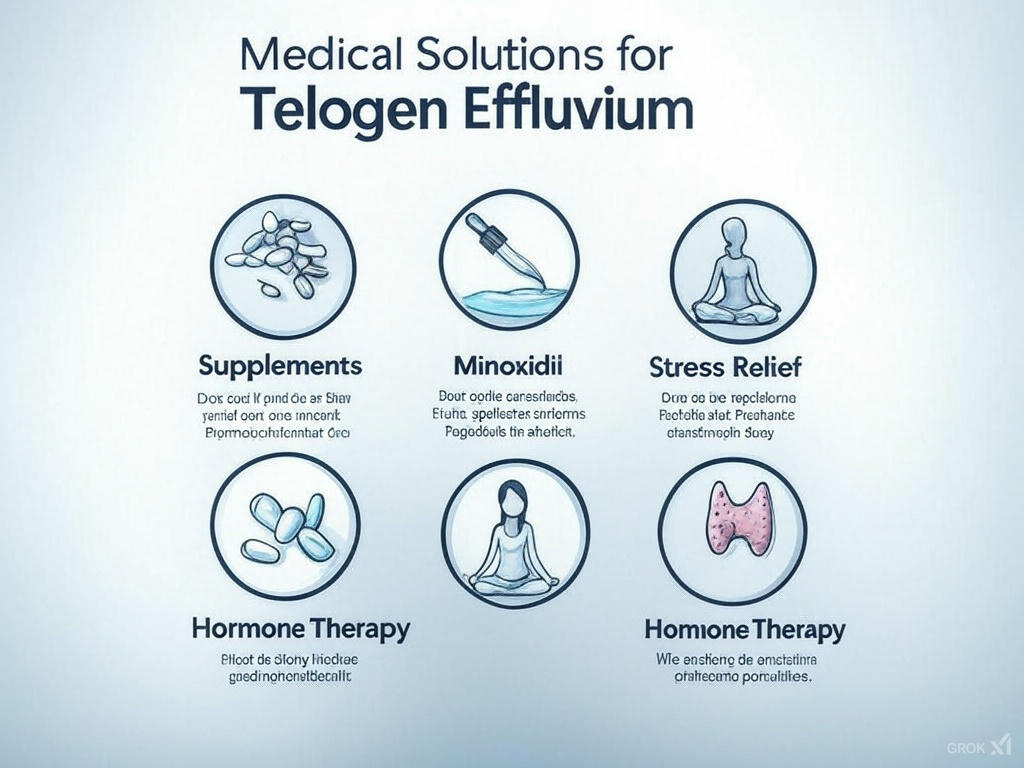
Since telogen effluvium is often reversible, treatment focuses on addressing the underlying cause and supporting regrowth. Here are some options:
- Identify and Eliminate Triggers: Work with a doctor to pinpoint the cause—stress, diet, or medication—and address it. The AAD stresses this as the first step.
- Nutritional Supplements: Iron, biotin, or vitamin D supplements may help if deficiencies are confirmed via blood tests, per Cleveland Clinic.
- Minoxidil: This topical solution can shorten the telogen phase and encourage regrowth, though it’s not a cure, notes WebMD.
- Hormone Therapy: For hormonal triggers, adjusting thyroid medication or stabilizing estrogen levels might be recommended.
- Stress Management: Techniques like therapy or meditation can reduce chronic shedding, as supported by Medical News Today.
A dermatologist can tailor a plan based on your specific trigger and health profile.
Non-Medical Solutions: Boosting Confidence
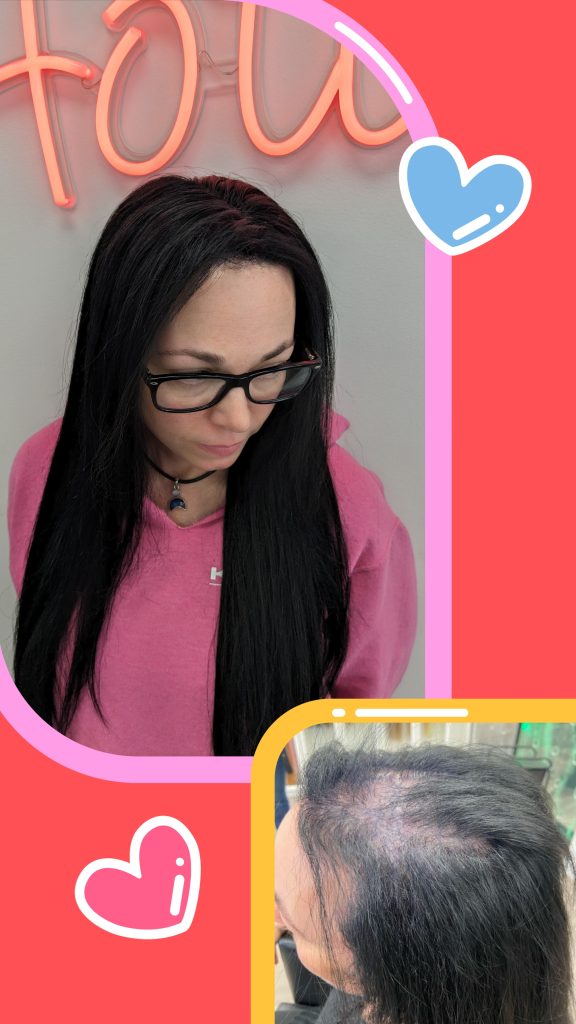
While waiting for regrowth, non-medical solutions can conceal thinning and enhance your look. These include:
- Mesh Integration: A custom hairpiece is woven into your natural hair for seamless volume. Check out this option at Hottie Hair Salon & Extensions Store.
- Hair Toppers: These clip-on pieces cover thinning areas or add fullness. Explore high-quality toppers at Hottie Hair.
- Wigs: Full wigs offer instant coverage and style versatility. Find expertly fitted options at Hottie Hair Salon.
- Styling Tricks: Volumizing products or a new haircut can camouflage thinning temporarily.
For professional application and personalized styling, Hottie Hair Salon & Extensions Store in Las Vegas is highly recommended. Their team can match your natural hair with toppers, wigs, or extensions for a flawless result.
Prevention Tips
Preventing telogen effluvium involves minimizing triggers and maintaining hair health:
- Eat a balanced diet rich in protein, iron, and vitamins.
- Manage stress with exercise, mindfulness, or professional support.
- Avoid harsh hair treatments like excessive heat or chemicals.
- Consult a doctor before starting medications known to affect hair.

Conclusion
Telogen effluvium may feel overwhelming, but its temporary nature offers hope. By addressing the root cause—be it stress, nutrition, or hormones—regrowth is often achievable with patience and care. In the meantime, non-medical solutions like mesh integration, toppers, and wigs from Hottie Hair Salon & Extensions Store can restore your confidence while your hair recovers. Whether you opt for medical intervention or a stylish cover-up, understanding this condition is the first step to reclaiming your locks.
FAQ: Telogen Effluvium Answered
- What is telogen effluvium?
It’s a temporary hair loss condition where stress or triggers push more hairs into the resting phase, causing shedding, per Healthline. - What causes telogen effluvium?
Common triggers include stress, hormonal changes, poor nutrition, medications, or illness, as noted by Cleveland Clinic. - How long does telogen effluvium last?
Typically 3-6 months after the trigger is resolved, though chronic cases can persist longer, says AAD. - Will my hair grow back?
Yes, in most cases, hair regrows once the cause is addressed, per WebMD. - What medical treatments help?
Options include supplements for deficiencies, minoxidil, or stress management, as recommended by Medical News Today. - How does mesh integration work?
It integrates a hairpiece with your natural hair for added volume, offered by Hottie Hair Salon. - Are hair toppers effective for thinning?
Yes, they conceal thinning areas and boost fullness. Find them at Hottie Hair. - Can wigs help with telogen effluvium?
Absolutely, wigs provide instant coverage during recovery. Check out Hottie Hair Salon for options. - How can I prevent telogen effluvium?
Maintain a healthy diet, manage stress, and avoid harsh hair treatments, advises Cleveland Clinic. - Where can I get non-medical solutions?
Visit Hottie Hair Salon & Extensions Store for expert styling, wigs, toppers, and mesh integration tailored to your needs.
You must be logged in to post a comment.